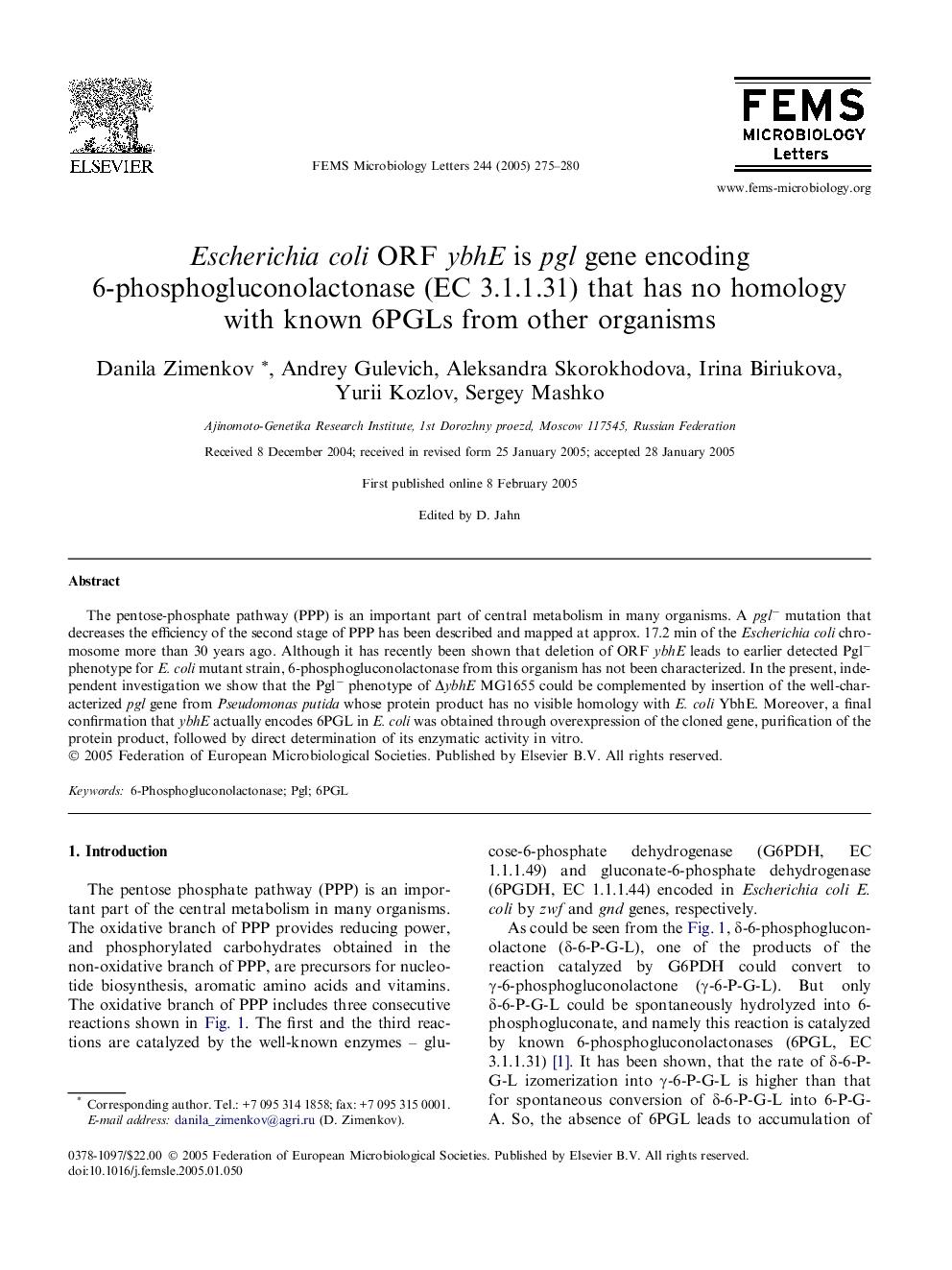| Article ID | Journal | Published Year | Pages | File Type |
|---|---|---|---|---|
| 9121651 | FEMS Microbiology Letters | 2005 | 6 Pages |
Abstract
The pentose-phosphate pathway (PPP) is an important part of central metabolism in many organisms. A pglâ mutation that decreases the efficiency of the second stage of PPP has been described and mapped at approx. 17.2Â min of the Escherichia coli chromosome more than 30 years ago. Although it has recently been shown that deletion of ORF ybhE leads to earlier detected Pglâ phenotype for E. coli mutant strain, 6-phosphogluconolactonase from this organism has not been characterized. In the present, independent investigation we show that the Pglâ phenotype of ÎybhE MG1655 could be complemented by insertion of the well-characterized pgl gene from Pseudomonas putida whose protein product has no visible homology with E. coli YbhE. Moreover, a final confirmation that ybhE actually encodes 6PGL in E. coli was obtained through overexpression of the cloned gene, purification of the protein product, followed by direct determination of its enzymatic activity in vitro.
Keywords
Related Topics
Life Sciences
Biochemistry, Genetics and Molecular Biology
Genetics
Authors
Danila Zimenkov, Andrey Gulevich, Aleksandra Skorokhodova, Irina Biriukova, Yurii Kozlov, Sergey Mashko,
